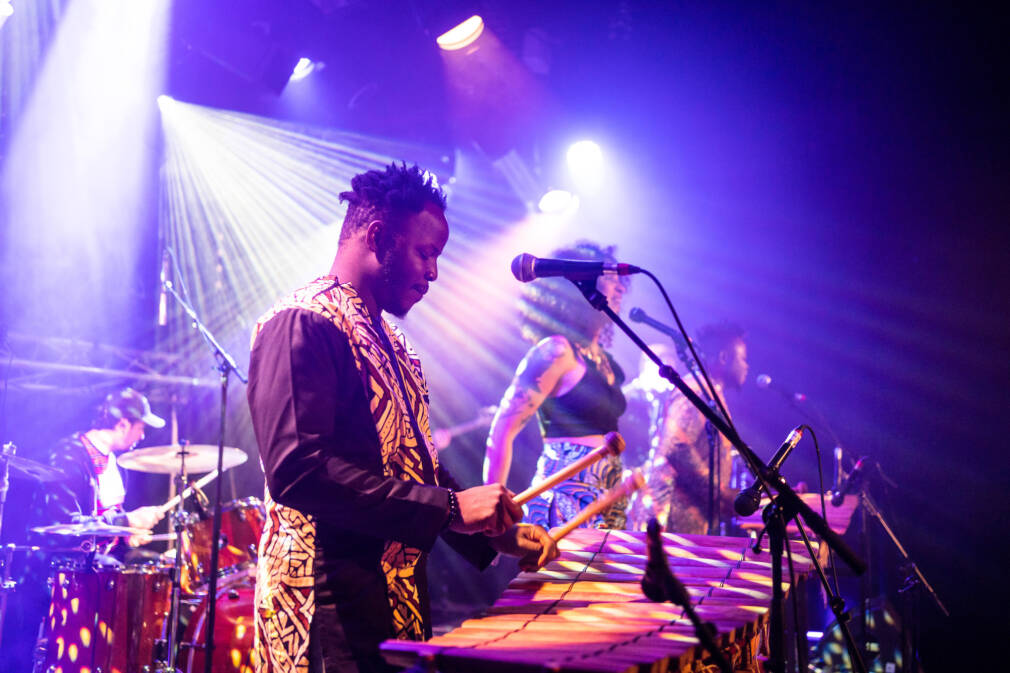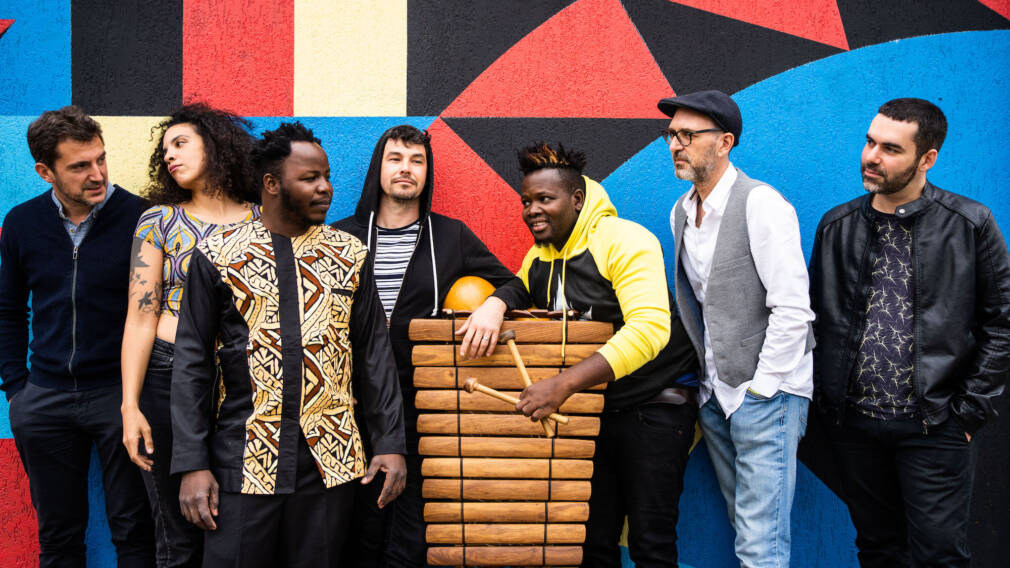Seydou Diabate was destined to play the balafon, a resonated xylophone that carries a long history with Mandé people of West Africa from which Seydou gets his name. Born to the Diabate griot family in Burkina Faso, as a child Seydou’s life revolved around the instrument. “Back then, I didn’t go to school. I had to follow my father,” he explains, “what he did. We practiced, we ate… It was like a job and I was an only child.” Eating and sleeping, building and playing, Seydou Diabate quickly mastered the enormous instrument. Placing the gourds beneath the kosso rosewood keys and striking with the fashioned mallets, Seydou Diabete would play in the fields for the workers during the harvest season, learning the songs of ceremony and weddings, a griot in the making. However, at the age of 10, Seydou Diabete tragically lost his father, pushing him to leave his village for Bobo-Dioulasso, Burkina Faso’s second largest city. It was there that the cosmopolitan energy infected Seydou, and he began to dream of a life with his balafon without borders. “As I was doing traditional balafon music, I wanted to let people discover that elsewhere. Before me, there were already people playing the balafon in Burkina. I wanted to get out of Burkina to realize my dream. To make the balafon tour internationally.”

In 2011, Seydou moved to Toulouse, France with that mission at heart. Upon his arrival he began to construct a group, an Orkestra, that could accompany his balafon. However, from the beginning, there was a desire to merge his tradition with other cultures and styles. “I wanted to modernize a bit,” he says. In came the rest of the Orkestra around 2013. First there was Madou Dembele, a fellow Burkina who played the balafon and n’goni. Then came Thomas Koening on saxophone and flute, Stéphane Perruchet on percussion, Elvin Bironien on bass and Laurent Planells on drums. With the new members there was a new mix of jazz, latin and creole influences that brought a cosmopolitan twist to the traditional sound. A delicate formula well established in a globalized world that presents challenges of its own. “The process, each time with each new album, has been to push the mix further,” explains the group’s producer. “At the beginning, the first album was very traditional. The second one, it integrated a lot of new elements, notably very jazz. With this third one they’re trying to explore new horizons.” Originally sung exclusively in Bambara on the group’s 2016 album Miriya, which included hypnotic balafon riffs on “Fantanya” and the passionately sung “Folo Folo”, the group took a jazzier turn Tolonso in 2019 like on the peppy single “Mousso”. However the most recent iteration of the Orkestra is perhaps the most striking turning point.
Now Kanazoé Orkestra has added a feminine voice and a new spirit. French rapper and singer Gaëlle Blanchard joined the group for the upcoming Folikadi EP. Boasting a background in hip-hop and soul music, Gaëlle learned to sing phonetically in Bambara, but also offers her native French which challenges Seydou on the question of mixing, of experimenting, of observing, of reflecting on the balafon’s place in this cosmopolitan mix. For Gaëlle as well it was a matter of “seeing if I could actually do it… out of curiosity.” It’s this mix of openness and curiosity that brings the group together, and a charity from Seydou down that leaves space for everyone to add their creative element to the Orkestra.
That and the meaning behind the words and sounds. “There are very strong themes,” Seydou explains. “We talk about things like our children, about ecology, about how we are going to leave something for the children tomorrow. We try to give advice. In any case, we don’t play the music by itself.” Seydou remains rooted in the sacred and guiding nature of the balafon. The responsibility that comes with music to guide peoples and provide parables and propositions for a better understanding of life. “I keep this because I was born to find this. It’s not for me to change,” he says of his connection to the sacred element of his music. But nonetheless, “I made some progress in this in my own way. So I’m proud to have done that. I’m still going, I’m not done.”
It’s a life’s work and it’s hard to imagine Seydou ever being “done”. With the Folikadi EP on its way and leaving the echoes of his instrument across the world from Ivory Coast to Belgium, Burkina Faso and Cape Verde, Seydou and the Kanazoé Orkestra is fulfilling the young griot’s early dreams of bringing his balafon music to the world and his own distinct and collaborative way. “Each album is not easy,” says Seydou, “But it’s part of me anyway. The balafon is really a dream, it’s a feeling. I have nothing to say, just to thank people, they believe in me, they want to have this adventure with me. I am very happy. I’m not stopping here.”
